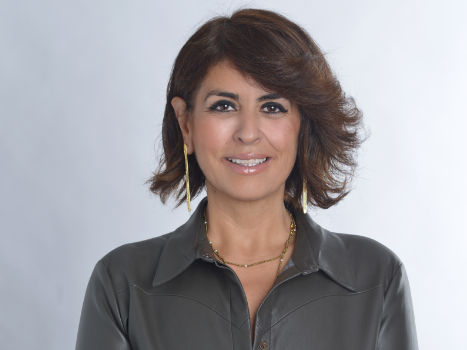An espresso with…Sülmez Dogan

Sülmez Dogan has been Vice President of the Bremen Parliament and a Member of Parliament for the Green Party since 2015. She studied law at the University of Bremen from 1995 to 2000 and worked as a lawyer in Bremerhaven from 2007 to 2020.
Why did you choose the University of Bremen?
I was born and raised in Bremerhaven and it was actually that city that made university studies possible for me. Because there are many people in Bremerhaven who have supported me, and without them, I wouldn't be where I am today. I am the first person in our large family to do the Abitur (A-levels). When it came to studying, I thought that I would like to give something back to this city and state, and that's why I consciously chose the University of Bremen.
What were your most formative experiences at university?
At my first law lecture in the "biscuit jar"(“Keksdose”), I got really scared at first. There were so many students there, the professor went straight into the subject matter, and I thought to myself, you don't understand a single thing. It was a completely different situation from school, where you had access to the teachers and could discuss things with them. I came to university as a working-class kid and had no one to talk to about what I was studying. My father was a simple labourer and my mother is unfortunately illiterate to this day. So I was very happy that I quickly got access to my professors, who took me by the hand, showed me the way and reassured me that I would succeed in my studies. That made me really enthusiastic and I knew from my friends that this was not the case at other universities.
You then finished your degree and then became a successful lawyer in Bremerhaven...
During my studies I was very interested in civil law, with a focus on consumer protection and liability law. But when I opened my own law firm, things turned out quite differently. I was the first female lawyer in Bremerhaven who spoke Arabic and Turkish, and then many, many women came to me who had had negative experiences and needed help. On the one hand, migrant women who were happy that there was no language barrier with me. On the other hand, there were also many German women who knew that I had grown up in one of the poorest parts of town and who thought: she will help us. So it was a lot about residence rights, but also family matters, divorces, parental custody, and unfortunately there were also many experiences of violence suffered by these women, whom I then also supported with criminal law.
What from your studies was particularly important for your later career?
In Bremen I found it especially valuable that not only good subject matter knowledge was conveyed in my courses, but also an attitude that you should work for the benefit of society. All those who left Bremen after their studies carry this out into the world as ambassadors. In my case, with this good education, I have been able to help so many women lead a different life. And in Bremerhaven I have certainly become a role model for many young girls to not get married straight away, but to learn a profession and live a self-determined life. I am really grateful to the University of Bremen for all this.
What would you like to pass on to students today?
That they should gain a lot of practical experience during their studies. I lacked that a bit back then, but that was also the case for other students. For practical experience, volunteer work is also helpful. For example, I’ve seen young teacher trainees who had an excellent education but had never experienced an environment shaped by poverty. For them, doing appropriate internships before starting teaching would be very valuable.
“50 Years of Uni Bremen” –What do you associate with that?
Very, very many new opportunities in life that have opened up for me and other people through my studies. That realisation might sometimes get lost in the daily routine of university life. But I'm really grateful to the University of Bremen for that. Chapeau – hats off!

